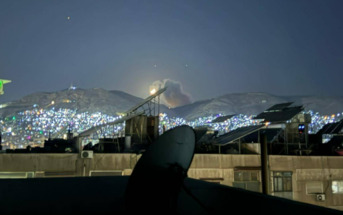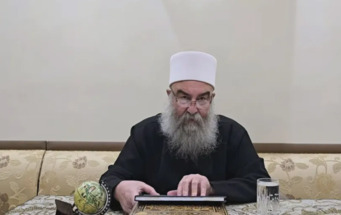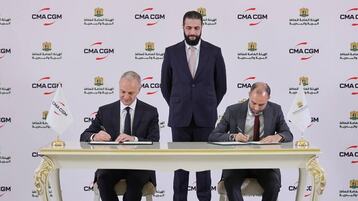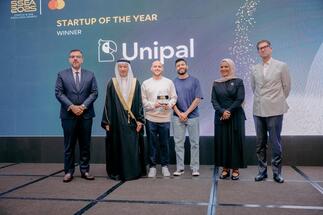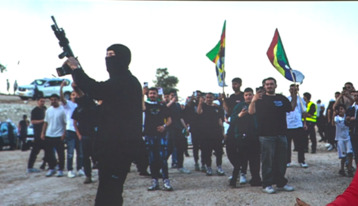-
Trump Administration Presents "Confidence-Building" List to Lift Sanctions on Damascus
-
The continuation of U.S. sanctions on Damascus is linked to the implementation of specific steps that reflect an American security vision—not aimed at saving Syria, but at containing its adversaries
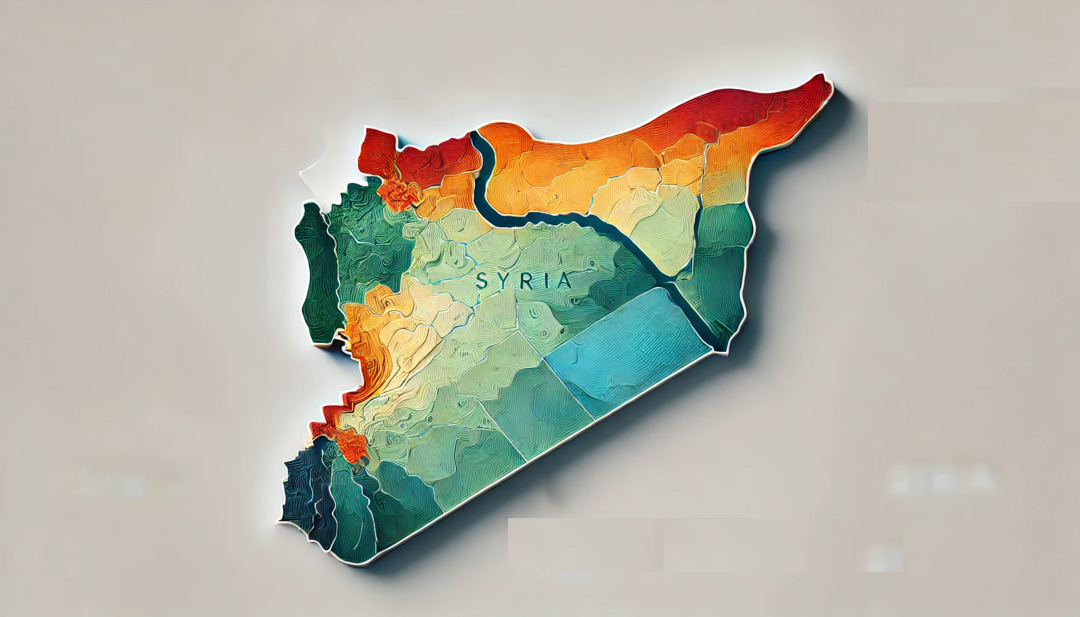
The Washington Post revealed on Thursday, citing a U.S. official, that former President Donald Trump's administration had submitted to the Syrian foreign minister a list of eight items representing preliminary "confidence-building" measures during a meeting held in Brussels last month. This initiative appears to reflect an American desire to manage the relationship with the new Syrian government without fully lifting the sanctions imposed on it.
The paper noted that implementing these items is considered a precondition for discussing a partial easing of the economic sanctions on Damascus, which have remained in place since the era of former President Bashar al-Assad. This American proposal seems to serve as a test of intentions by the new U.S. administration towards Al-Sharaa and his government.
The document, which the newspaper said it had reviewed, includes a U.S. demand allowing Washington to conduct counter-terrorism operations within Syrian territory, targeting any group considered a threat to U.S. national security. This indicates that Washington still views Syria as an open arena for securing its strategic interests beyond its borders.
Additionally, the list includes a clause obligating Damascus to issue an official declaration banning political Palestinian activities and groups on its soil, along with the deportation of members of these groups—in an apparent attempt to reassure Israel. This step underscores the alignment between U.S. and Israeli security considerations in Syria.
Washington also asked the Syrian government to publicly declare its support for the international coalition against ISIS, which appears to be an American effort to extract a clear political stance from Al-Sharaa against extremist factions. This request reflects Washington's attempt to verify a genuine policy shift in Syria toward combating terrorism.
The newspaper pointed out that President Trump, who was considering reducing U.S. military presence in Syria after suspending some humanitarian aid programs, faced increasing opposition from his European and Arab partners, who had already begun engaging with the new Syrian government. This disagreement reveals diverging strategies between Washington and its allies over whether to support or contain Al-Sharaa.
Since the ouster of Bashar al-Assad in December 2024, President Ahmad Al-Sharaa has taken measured steps toward Western powers, which many U.S. allies—except for Israel—view as a political opportunity to reshape the balance in a troubled region. However, American caution remains dominant, particularly in the absence of conclusive evidence of real change in the regime's approach.
The Washington Post said that despite the ongoing sanctions, the Trump administration did not show a clear openness to Damascus, choosing instead to observe from a distance. This hesitation reflects Washington's continued skepticism toward Al-Sharaa’s intentions, despite public signals of rapprochement.
A senior U.S. official stated, "We continue to approach Syria with great caution until Al-Sharaa proves he has purged his government of foreign Islamist extremists and remnants of Al-Qaeda, and proves he can unify the various minorities in Syria." This statement clearly reveals that from Washington’s perspective, the core challenge is not political legitimacy but the ability to manage social diversity and counter extremism.
The same official added, "Our goal is not necessarily to save Syria for the Syrian people… Our goal is to prevent the return of Iran and ISIS, as they represent the primary concern for the American people there." This reinforces that U.S. priorities remain purely security-driven—not humanitarian or democratic.
Since taking office, Trump had made no significant statements about the Syrian file and hadn’t finalized a decision on troop withdrawal, despite issuing such orders three times during his previous term—orders that were later reversed. This ambiguity reflects internal contradictions within U.S. institutions regarding the future of its presence in Syria.
While a full U.S. withdrawal from Syria is not currently under consideration, defense reports have revealed plans to gradually reduce military deployment. This phased policy may pave the way for substantial changes in the nature of U.S. influence in northeastern Syria.
A U.S. official specializing in the Syrian file explained that the current direction leans toward reducing the number of American troops to a bare minimum, stating: "I believe we’ll scale down to a single, very small location in the northeast." This move seems aimed at maintaining a symbolic presence without becoming entangled in broader field commitments.
You May Also Like
Popular Posts
Caricature
BENEFIT Sponsors BuildHer...
- April 23, 2025
BENEFIT, the Kingdom’s innovator and leading company in Fintech and electronic financial transactions service, has sponsored the BuildHer CityHack 2025 Hackathon, a two-day event spearheaded by the College of Engineering and Technology at the Royal University for Women (RUW).
Aimed at secondary school students, the event brought together a distinguished group of academic professionals and technology experts to mentor and inspire young participants.
More than 100 high school students from across the Kingdom of Bahrain took part in the hackathon, which featured an intensive programme of training workshops and hands-on sessions. These activities were tailored to enhance participants’ critical thinking, collaborative problem-solving, and team-building capabilities, while also encouraging the development of practical and sustainable solutions to contemporary challenges using modern technological tools.
BENEFIT’s Chief Executive Mr. Abdulwahed AlJanahi, commented: “Our support for this educational hackathon reflects our long-term strategic vision to nurture the talents of emerging national youth and empower the next generation of accomplished female leaders in technology. By fostering creativity and innovation, we aim to contribute meaningfully to Bahrain’s comprehensive development goals and align with the aspirations outlined in the Kingdom’s Vision 2030—an ambition in which BENEFIT plays a central role.”
Professor Riyadh Yousif Hamzah, President of the Royal University for Women, commented: “This initiative reflects our commitment to advancing women in STEM fields. We're cultivating a generation of creative, solution-driven female leaders who will drive national development. Our partnership with BENEFIT exemplifies the powerful synergy between academia and private sector in supporting educational innovation.”
Hanan Abdulla Hasan, Senior Manager, PR & Communication at BENEFIT, said: “We are honoured to collaborate with RUW in supporting this remarkable technology-focused event. It highlights our commitment to social responsibility, and our ongoing efforts to enhance the digital and innovation capabilities of young Bahraini women and foster their ability to harness technological tools in the service of a smarter, more sustainable future.”
For his part, Dr. Humam ElAgha, Acting Dean of the College of Engineering and Technology at the University, said: “BuildHer CityHack 2025 embodies our hands-on approach to education. By tackling real-world problems through creative thinking and sustainable solutions, we're preparing women to thrive in the knowledge economy – a cornerstone of the University's vision.”
opinion
Report
ads
Newsletter
Subscribe to our mailing list to get the new updates!




